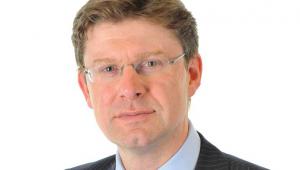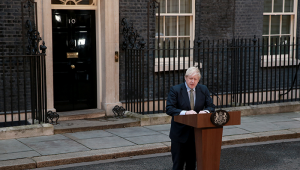Publishing latest figures on reserve levels in local government, Clark said local authorities are “well placed” to make further reductions, having increased non-ringfenced reserves from £13bn in 2010/11 to £22.5bn in 2014/15.
“With local government accounting for a quarter of all public spending, it is right that they are called on to play their part in dealing with the deficit,” he said ahead of next week’s Spending Review.
“Today’s figures show how they are well placed to do so, with local authorities holding £22.5bn held in non-ringfenced reserves – up 170% in real terms over the last 15 years.
“As we continue to secure our country’s economic future and cut the deficit, now is the time to make efficient use of their assets and resources to provide the services local people want to see.”
According to DCLG, the figures include a near £1bn rise in the last year across 444 local authorities, which as well as councils includes police and fire authorities and the Greater London Authority.
However, Local Government Association resources portfolio holder Claire Kober said the figures were misleading and “the suggestion that they prove councils are able to absorb further funding cuts is wrong”.
She added: “In many ways, managing a council’s budget is no different to managing your own household budget in that it is always prudent to put money aside to fix the roof if it falls in. For councils, this is especially important given the great financial uncertainty they face and the potential of further cuts to their budgets.
“Most of this money is used to repair ageing council assets, build new roads and regenerate areas or pay for school places and superfast broadband.”
Reserves can help councils manage growing financial risks to local services, she said, and what’s left beyond this would only cover less than a month’s spending.
Kober noted 93 councils had been forced to withdraw money from reserves in 2014/15 and 203 planned to do so in 2015/16 as funding cuts announced under the coalition government continued to bite.
The size of cuts councils were to make could not be met by spending reserves, she added.
“Forcing councils to spend reserves on plugging funding gaps would be a reckless gamble with the future of people who rely on council services and would put local communities on the fast-track to financial failure.
“Such a move would leave councils with no funds to make vital investments or manage new financial risks and would also increase the national deficit.”
The LGA highlighted that the published figures show that, as at 31 March 2015, the 353 councils in England held £13.7bn in earmarked reserves (including reserves earmarked for public health) and £3.7bn in general reserves.
CIPFA chief executive Rob Whiteman said councils should resist calls to drive down their reserves to cope with planned reductions in government funding.
"Responsible councils know that this would be a recipe for significant financial problems in the future and leave them dangerously exposed to sudden shocks – and we are already seeing significant rises in unbudgeted appropriations, that is drawdowns, from reserves this year," he said
"A survey CIPFA undertook only this summer found that, while the headline levels of reserves held by local authorities have increased significantly over the last parliament, almost all of those reserves are already allocated for specific investments and to manage future risk."



















